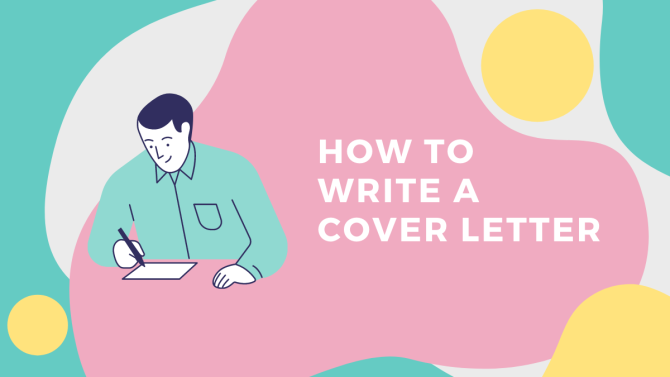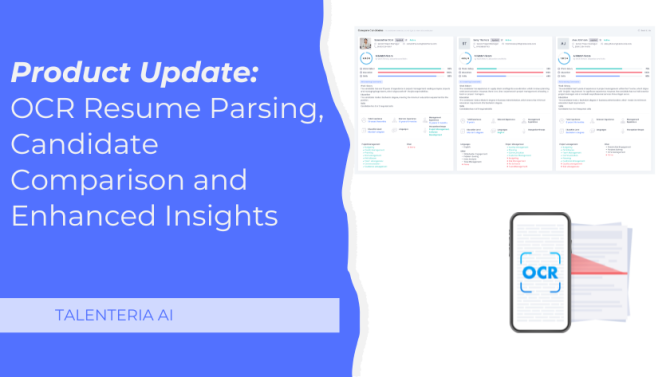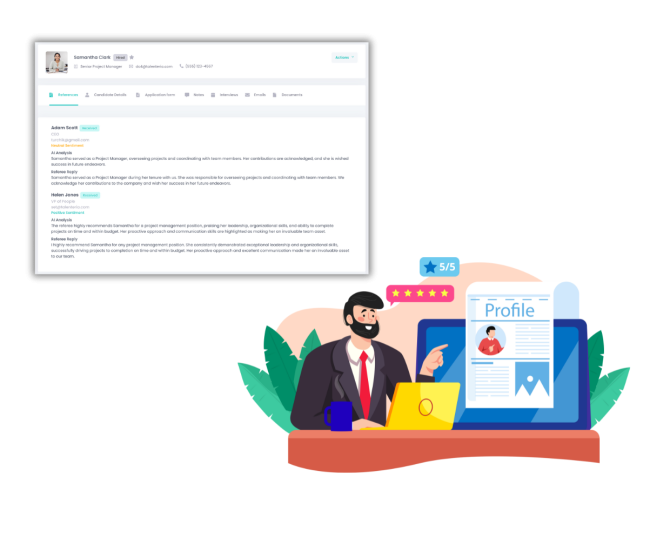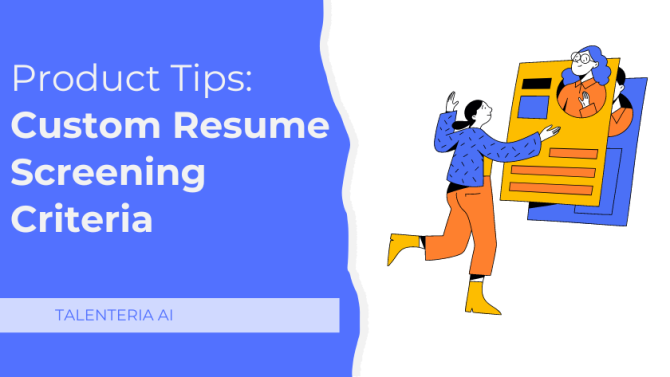
How to Write a Cover Letter
There are no second chances at a first impression, but after reading this article, you won’t need one! Sometimes a cover letter can make or break an application and help you clinch that dream job. Let’s discuss the functionality of a cover letter and provide some top tips on how to write a suitable cover letter guaranteed to make you stand out amongst the crowd.
What Is a cover letter?
A cover letter is a professional document that accompanies your CV when applying for a job. Not only is it used to expand upon your skills and experience that make you qualified for the position, but it is also your main opportunity to give hiring managers deeper insight into who you are as a person and, more importantly, why you are right for the role. An effective cover letter should adeptly promote your strengths and achievements with the goal of convincing companies that you are the one they are looking for. If crafted masterfully, it can make all the difference between you and other applicants.
Not all jobs require or request a cover letter, but it is always better to send one anyway – if not just to show you have initiative and are willing to go the extra mile.
The Different Types of Cover Letters
There are different types of cover letters, each constructed specifically depending on their purpose.
1. Application cover letter – the most used type of cover letter that is sent alongside your CV resume to apply for a specific job listing. Its primary function is to supplement and elaborate on key skills and relevant work history in reference to the job listing itself.
2. Prospective cover letter – written to inquire about possible open positions as opposed to responding to a job listing.
3. Networking cover letter – a less formal letter usually written to former colleagues, friends, mentors, and other contacts with the intention of asking them for help in your job search. These types of letters are usually a lot shorter than the others.
4. “Non-Cover-letter” cover letter – used most often when a cover letter has not specifically been requested and is commonly composed in an email with your CV resume attached and/or any other requested documents. It should be relatively short and have a casual yet still professional tone with a simple structure of a greeting, a small main body of text (no longer than around two paragraphs) explaining the purpose of the email, your interest in the company and job, and some relevant skills and experience. Conclude with a direction to see enclosed attachments and a professional sign-off.
What to Include in Your Cover letter
Cover letters are personal, and their unique and original nature allows for some creativity - but while there is much freedom, variation, and flexibility with contents and linguistic choices, there are also many recommendations on what should and should not be included. The idea is to be memorable, but for the right reasons!
There are no strict rules set in stone when it comes to the structure of cover letters, but a typical cover letter tends to go a little something like the following:
- Contact information - your full name, address, and contact details should be listed at the top of the page.
- Greeting – preferably address the hiring manager by name.
- Introduction - introduce yourself and explain the reason for writing with details of the position of interest, such as the name of the position and where you saw the job listing.
- Main body - command attention with an engaging opening sentence that will entice the recipient to continue reading. Then elaborate on why you are perfect for the role and a right fit for the company.
- Formal closing – include a call to action and politely thank them for their time.
- Signature – sign your name if it is a paper copy or type your name in full for a digitized letter.
The most common advice from experts is that cover letters should be custom-tailored to each job application you send, so it is imperative that you also give specific and compelling answers to the questions:
- Why do you want this particular role?
- Why do you want to work for this company?
Do background research into their organization to convey an authentic interest in their history and company values. Current news and events in relation to the company/industry may also be relevant to discuss and can show the reader that you have commercial and brand awareness. Taking the time to learn and research more about your potential employer shows that you are truly invested and serious about your application.
If the name of the hiring manager is not readily accessible, try to find out who you should be addressing the letter to by doing a little online investigating either through a Google search, browsing on the company’s official website, or use of LinkedIn.
The bulk of the letter should be used to market yourself as an individual with anecdotal evidence of relevant achievements to prove you possess the desired skillsets necessary for the position. Now the questions you should be answering are:
- Why should they choose you?
- What makes you qualified for the role?
- What skills, qualities, and achievements set you apart from other candidates?
- What examples do you have that demonstrate these claims?
Avoid listing or repeating tasks and duties already on your CV without expanding on them as it provides no new or interesting information and does nothing to impress the hiring manager. Instead:
- Detail a past professional scenario in which you exemplified skills and traits required.
- Include facts and figures if available to back up statements.
- Emphasize what you learned from your previous work experiences.
- Focus on how much of an impact you made during your time in previous positions.
- Highlight transferable skills you have acquired that are applicable to the position of interest.
If you have limited work experience, you may alternatively talk about a project you have undertaken or perhaps a suitable hobby – though you should proceed with caution. Always make sure what you decide to write about is relevant.
Irrelevant information will work against you as it will come across as boring, confusing, or unnecessary padding and will likely lead to your application going straight to the shredder! The best way to keep relevance is to consistently compare what you have written to the requirements in the job description. Everything in your cover letter should always relate back to what makes you the right fit for the role.
Another thing best left off a cover letter are stories that are too personal about yourself or your family and friends. This only serves to distract from the main point of the letter and will come off as unprofessional. Always stick to promoting the credentials that make you a worthy candidate, and steer away from mentioning any shortfalls in experience or qualifications that the employer is seeking.
It is also inappropriate to raise questions about the job itself, such as the benefits, the salary, or the schedule. These queries should be reserved for the interview should you reach that stage.
They say honesty is the best policy, so always be truthful about everything you write in your cover letter and do not fabricate or try too hard to oversell your abilities and experiences by exaggerating and embellishing. Most seasoned hiring managers will find this transparent, and it may cause them to question the credibility of your entire application. Even if you do manage to fool them, you will usually be found out at a later stage which may have damaging effects on your career moving forward and will likely result in you being blacklisted for future applications.
Cliches and overused expressions may get an eye roll or two from the hiring manager, and although they may not necessarily disqualify you from consideration, it can seem annoying to someone who has read the same thing a thousand times already. Be more inventive with your vocabulary and wording to differentiate yourself from the rest of the pack.
A strong closing statement should sound confident, optimistic, and enthusiastic. Tying back to your opening paragraph would be a great way to bring the letter full circle and give a feeling of cohesiveness. Make sure to politely thank them for their time and include a humble call to action that suggests you will be anticipating a follow-up, but do not demand or overstep with phrases like: “I’ll call you on Monday to schedule an interview.”
How Should a Cover Letter Be Formatted?
Keep these tips in mind when formatting your cover letter:
- Keep it concise – ideally, one side of A4 should be enough; quality of content is much more effective than quantity. You should be aiming for a quick summary, not a whole life story.
- Balance professionalism with personality – while the letter should sound like you and give an accurate reflection of who you are, the overall tone should remain professional.
- Adequate spacing – ensure enough white space has been left between the header, the greeting, the paragraphs, the formal closing, and the signature to allow for a clear and easy read.
- Use a professional font – an amazing cover letter is useless if it is unreadable, and a ridiculous font would reflect poorly on you. Commonly used fonts are Arial, Calibri, Georgia, Verdana, and Times New Roman in font size 10 to 12, and the font selected should match the one used for your CV. Do not choose a large font size to compensate for lack of content. Similarly, do not choose a small font size in an attempt to cram more information onto the page.
- No spelling or grammar mistakes - thoroughly check for any errors; easily corrected blunders are quite embarrassing, especially if you described yourself as detail-orientated!
- Save as a PDF file – unless the company requests another file format, send your cover letter as a PDF; this will preserve all formatting and general layout of the page more reliably.
For more insights on the hiring process, check out our other Talenteria blog posts!





